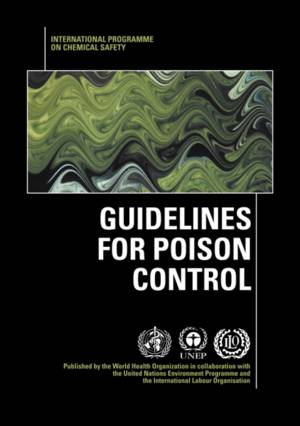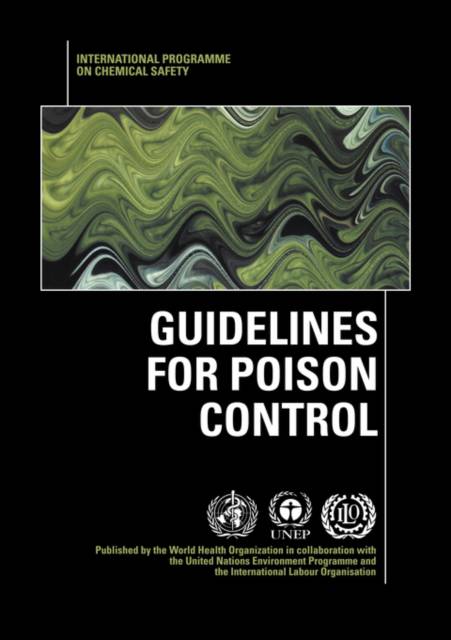
En raison d'une grêve chez bpost, votre commande pourrait être retardée. Vous avez besoin d’un livre rapidement ? Nos magasins vous accueillent à bras ouverts !
- Retrait gratuit dans votre magasin Club
- 7.000.000 titres dans notre catalogue
- Payer en toute sécurité
- Toujours un magasin près de chez vous
En raison de la grêve chez bpost, votre commande pourrait être retardée. Vous avez besoin d’un livre rapidement ? Nos magasins vous accueillent à bras ouverts !
- Retrait gratuit dans votre magasin Club
- 7.000.0000 titres dans notre catalogue
- Payer en toute sécurité
- Toujours un magasin près de chez vous
Guidelines for Poison Control
International Program on Chemical Safety, World Health Organization
Livre broché | Anglais
30,95 €
+ 61 points
Description
Provides authoritative guidelines for the establishment or improvement of national programmes for poison control. Addressed to policy-makers and the administrators of specialized facilities, the book responds to the need for comprehensive advice on the most rationale and effective ways to manage the greatly increased number of poisoned patients seen throughout the world. Strategies for the prevention of poisoning are also described. The guidelines draw on the practical experiences of numerous well-established poison centres in different parts of the world. Although recommended lines of action have universal relevance, the book gives particular attention to the situation in developing countries, where a basic infrastructure for the care of poisoned patients is often absent and special problems arise from the lack of adequate communications, transportation, drugs, and support services. Throughout, emphasis is placed on the role and functions of a poison information centre as a crucial component of any national programme for poison control. The book has nine chapters presented in two parts. Part one provides an overview of the policy issues surrounding decisions to introduce measures, including specialized facilities, for the prevention and management of poisoning. Arguing that a poison information centre should be available in every country, part one also describes the benefits of such centres, outlines their principal functions, and suggests various options for their logical and cost-effective operation. Against this background, part two provides detailed technical advice on how to organize and operate the various facilities and services that make up a comprehensive system for poison control. Separate chapters describe the functions and requirements of information services, clinical services, and analytical toxicological and other laboratory services, and discuss the importance of toxicovigilance as a strategy for prevention. Subsequent chapters explain how to deal with major emergencies involving toxic chemicals, and outline solutions to the problem, encountered in most developing countries, of obtaining essential antidotes. Part two concludes with advice on the design and content of forms for collecting, storing, and reporting data, followed by a detailed list of the main literature required in a poisons information centre. Additional practical information is provided in a series of annexes, which describe a computer software system for the management of poisons data, reproduce several model record and reporting forms, and classify a large number of antidotes and related agents according to their proven effectiveness and urgency of availability. "... For those involved in improving safety, this book is a bible... It is very difficult to be critical of this outstanding work ... an essential reference for all those involved in the use and handling of chemicals. For regulators and those concerned with government policy issues, it should be compulsory reading..." - Chemistry and Industry
Spécifications
Parties prenantes
- Auteur(s) :
- Editeur:
Contenu
- Nombre de pages :
- 128
- Langue:
- Anglais
Caractéristiques
- EAN:
- 9789241544870
- Date de parution :
- 01-01-97
- Format:
- Livre broché
- Format numérique:
- Trade paperback (VS)
- Dimensions :
- 210 mm x 297 mm
- Poids :
- 326 g

Les avis
Nous publions uniquement les avis qui respectent les conditions requises. Consultez nos conditions pour les avis.






